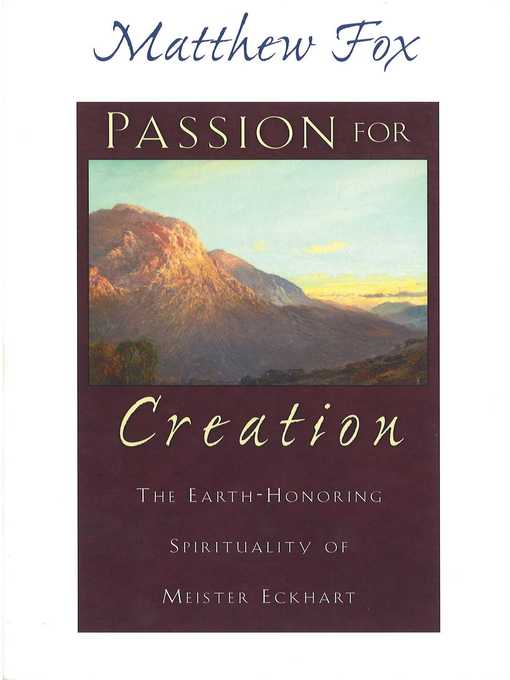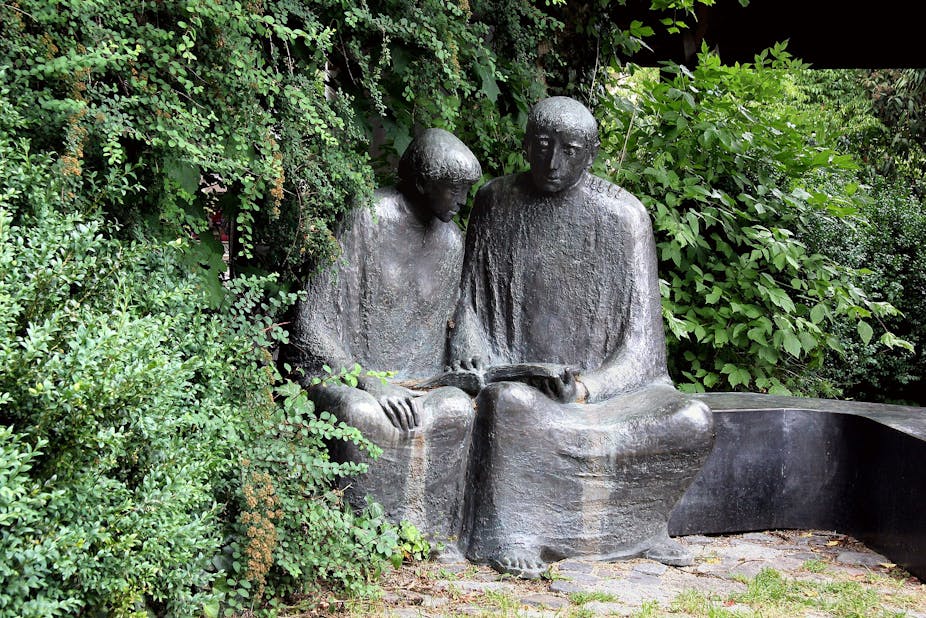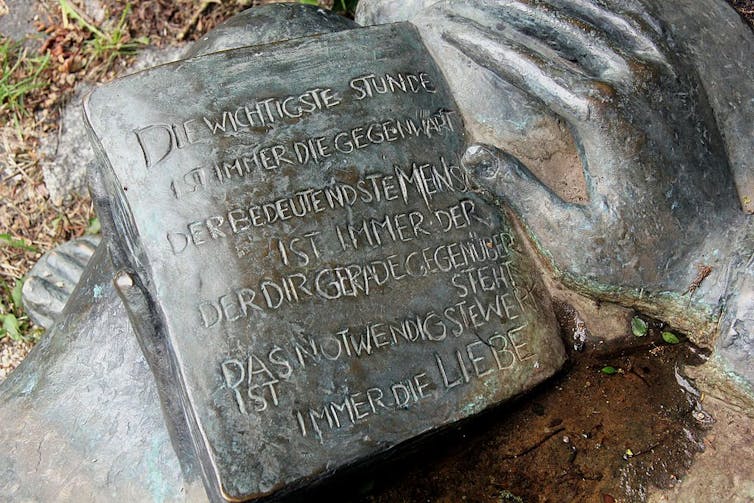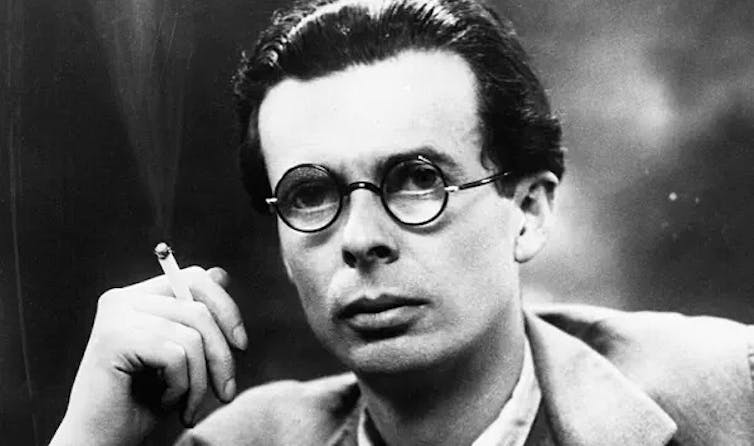Confessions: The Making of a Post-Denominational Priest Paperback – April 1, 1997
by Matthew Fox (Author)
4.0 out of 5 stars 12 ratings
--
Publication date
April 1, 1997
Publisher : Harper San Francisco (April 1, 1997)
Language : English
Paperback : 301 pages
Matthew Fox, the excommunicated Catholic priest who is perhaps the foremost articulator of creation spirituality, offers a meditative, almost conversational autobiography. It's the story of a vital and iconoclastic man who still loves his former church and who desperately wanted, while he was still part of it, to revitalize it in order to better address the spiritual challenges of postmodernity. Fox feels strongly that both the planet and the Church stand at an epochal crossroads, that one culture is dying as another struggles to be born. As he describes his growing differences with Rome, he writes movingly of the community of like-minded or receptive people that surrounded and sustained him, exhibiting the best Christian tradition of discipleship and critical inquiry. Despite their efforts and his own struggle to maintain both his integrity of thought and his vows of obedience to his Dominican order, Fox was first silenced and then expelled. He has, since 1994, found an ecclesial home as an Episcopal priest. This highly charged autobiography of a priestly life will stand as a lasting memorial to the difficulty of maintaining certain articles of faith and dogma at a time of shifting cultural paradigms. Fox's portrait of himself as he realizes that the truth he is pursuing is incompatible with the truth that his church can allow him to believe is likely to become a classic. (Apr.)
==
"In Confessions, Matthew Fox recounts his personal, intellectual, and spiritual journey from altar boy to Dominican priest to theologian, and the story of how he eventually found it necessary to stand up to the Vatican. It also tells the story of our times and the Catholic church's efforts at renewal at the Vatican Council, the abortion of that movement by two subsequent papacies (John Paul II and Benedict XVI), and the price many have paid for that betrayal. Fox was but one of 105 theologians silenced, condemned, and deprived of their livelihood by a papacy that "destroyed theology" and theological discourse, but was the most visible one in North America. After breaking with the Roman Catholic Church, Fox was confirmed as an Episcopal priest, and began working to reclaim spirituality from the bonds of organized religion while reinventing meaningful ritual through his "Cosmic Mass," geared particularly to the younger generation. Confessions describes the alternative programs and theological perspectives Fox brought forth in his thirty-two books and alternative pedagogy for reinventing education. Confessions is a remarkable story of activism for our times. Three new chapters in th
== Review
This highly charged autobiography of a priestly life will stand as a lasting memorial to the difficulty of maintaining certain articles of faith and dogma at a time of shifting cultural paradigms. Fox's portrait of himself as he realizes that the truth he is pursuing is incompatible with the truth that his church can allow him to believe is likely to become a classic. --Publishers Weekly
"'Hearing Matt Fox talk, I feel less lonely in the universe, ' said a street priest fifteen years ago. We should all feel less lonely now with this exhilarating, deeply companionable book in our hands. The unfolding story of this irrepressible spiritual revolutionary enlivens the mind and emboldens the heart--must reading for anyone interested in courage, creativity, and the future of religion."
--Joanna Macy, author of World as Lover, World as Self
"Traditionally, when big government in the church tries to silence a good soul, it indicates that the soul is often far ahead of the times. Matthew Fox is such a person. He writes simply, powerfully, about his life as a visionary. He continues now, as before, to give out the twenty-first-century keys to the kingdom."
--Clarissa Pinkola Estés, PhD., author of Women Who Run with the Wolves
"Matthew Fox has created a new mythic context for leading us out of our contemporary religious and spiritual confusion into a new clarity of mind and peace of soul, by affirming rather than abandoning any of our traditional beliefs."
--Thomas Berry, author of The Great Work
"Matthew Fox is one of our greatest and most essential teachers. In his updated Confessions he takes us on a journey into the depths of his heart and mind and shares the fierce ordeals and saving revelations that have shaped his pioneering work. Read this unique book and share it with others."
--Andrew Harvey, author of The Hope: A Guide to Sacred Activism
"Jung developed the idea that when the unconscious of any tribe, group, or community, is disturbed in its collective functioning 'there is always a medicine man who has a dream concerning the matter.' Matthew Fox is such a man. He recognizes that healing is a natural part of the via transformativia and that it is a priestly function to contribute, through compassion and social justice, to the healing of the collectivity."
--Steven Herrmann, PhD, MFT, author of Spiritual Democracy: The Wisdom of Early American Visionaries for the Journey Forward
==
› Visit Amazon's Matthew Fox Page
Matthew Fox
Follow
Biography
Matthew Fox is an internationally acclaimed spiritual theologian, Episcopal priest, and activist. He holds a doctorate, summa cum laude, in the History and Theology of Spirituality from the Institut Catholique de Paris and has devoted 45 years to developing and teaching the tradition of Creation Spirituality, which is rooted in ancient Judeo-Christian teaching, inclusive of today’s science and world spiritual traditions; welcoming of the arts and artists; wisdom centered, prophetic, and committed to eco-justice, social justice and gender justice.
Customer reviews
4.0 out of 5 stars
Top reviews from the United States
Claudia.PoetryPainter
5.0 out of 5 stars Matthew Fox carries on the study of Christian Spiritiuality where Thomas Merton left off.
Reviewed in the United States on February 24, 2015
Verified Purchase
An amazing life journey reflecting the major changes in our culture and Christian church in the second half of the 20th century.
Matthew Fox continued living a life focused on "a lived Christian experience" from where Thomas Merton left off in 1968 when he passed away.
Merton advised Fox (letter) to go to Paris to get graduate training in Christian Spirituality which he did from 1968 - 1970. This formative educational experience in Paris changed Matthew Fox's life and vocational calling as it did previous Christian scholars in the 16th C. who lived in Paris (Ignatus of Loyola and John Calvin).
Matthew Fox is a brilliant scholar and writer and has extensively researched many of historical Christian church leaders to glean their wisdom and experience in Christian Spirituality found in their context of the Roman Catholic Church.
I was constantly amazed at Matthew Fox's in-dept study, prolific writing, teaching, and leadership because he did not have the easy access to source material that we enjoy today. Another common trait he shared with Thomas Merton; living an extremely productive live without today's technology in the midst of demanding religious vocational callings.
5 people found this helpful
--
Steven H Propp
TOP 100 REVIEWER
5.0 out of 5 stars THE DEVELOPER OF "CREATION SPIRITUALITY" TELLS HIS STORY
Reviewed in the United States on December 21, 2012
Matthew Fox (born 1940) is a theologian and bestselling advocate of "Creation Spirituality." He became a Catholic priest of the Dominican order, but was removed in 1992, and has subsequently become an Episcopalian priest. He has written many other books, including Creation Spirituality: Liberating Gifts for the Peoples of the Earth .
He wrote in the Introduction to this 1996 book, "over these fifty-five years that constitute my story, some telling events have occurred culturally, religiously, perhaps even spiritually. I write this book as a witness to those events... the test I have survived may assist others today who find themselves either passing from religion to spirituality back into religion... I was asked to write an 'intellectual autobiography.' While my life and my passion have surely been about ideas... I prefer the term 'cultural autobiography.' To me this means that all ideas are culturally based and that in writing my story, I am contextualizing it in the larger story of our cultural coming of age." (Pg. 1-3)
He says, "I was high a lot of the time. The liturgy, the chanting of the office, friendships, the outdoors, studying theology, meditation---the silence and beauty of things and ideas all got me high. As my mystical experiences continued, I went looking among the priest-theologians at the priory for a spiritual director who could help me understand them. None of them could help me." (Pg. 39) He did ultimately hear a course by Louis Cognet, who said that "God becomes engaged by CREATION---not just by the incarnation. This would prove a dominant theme in my development of a creation spirituality." (Pg. 67)
He explains, "Calling my first few books after dreams and nursery rhymes ... kept the inquisitorial minds off my trail for many years. Wouldn't the Vatican thought police look silly raiding a bookstore for the dangers inherent in a book called On Becoming a Musical, Mystical Bear: Spirituality American Style ? At least for a while, it gave me some latitude in which to roam in search of a viable spirituality." (Pg. 94)
He admits, "A dark side to being in California is the accusation of being 'New Age' or 'flaky.' I have yet to hear that accusation from anyone who has read my books or studied the tradition. And creation spirituality IS a tradition... There is a kind of intellectual laziness in the American media that wants to ascribe all mysticism to being New Age..." (Pg. 157)
As the Church hierarchy began troubling him, he confides, "I have to say that certain Catholic liberal theologians let me down and contributed to my marginalization." (Pg. 216) Later, he adds, "People ask, 'But shouldn't we stay in the church and fight?' It seems to me that SOME will have such a vocation---and it is an honorable one. I myself stayed and fought for over ten years... So I did not leave, and I did fight. But I was expelled from the bus... Let 10 percent stay and fight the church authorities... But let the other 90 percent, the rest of us, get on with the task of tomorrow and let go of the sins of yesteryear." (Pg. 243) He concludes, "When I was dismissed by the Vatican, the first thing I did was to sit down and meditate. In my meditation it came to me that the Vatican had made me a postdenominational priest in a postdenominational era." (Pg. 246)
Matthew Fox's output has slowed down a bit in recent years (although he has written The Pope's War: Why Ratzinger's Secret Crusade Has Imperiled the Church and How It Can Be Saved , A New Reformation: Creation Spirituality and the Transformation of Christianity , etc.), but it remains of seminal interest to anyone interested in emerging trends of modern spirituality.
Read less
4 people found this helpful
-----
Steven Herrmann
5.0 out of 5 stars A Post-denominational Priest
Reviewed in the United States on April 4, 2010
By Steven B. Herrmann 4/4/10
---
Author of "William Everson: The Shaman's Call"
MC, The Birth of a Poet: The William Everson Centennial (UC Santa Cruz, October 20, 2012)
I was asked by Anglican Episcopal Priest, Matthew Fox, to write a review of his book which I am happy to do. Fox speaks of his "story about the coming of age spirituality in the latter half of the twentieth century" (2) in the form of a "cultural autobiography" (3).
In reading this book, one gets a sense that Fox is contextualizing his life-story in the "larger story of our coming of age" (3). In a Journal entry from Fox's approach to his fifty-third year, he writes about his decision to become an Anglican priest in vocational terms; by narrowing the vocation-question down to how he might serve the younger generation, and young one's to come, given his remaining "powers" (6), Fox says his becoming an Episcopalian was his answer to a call to assist young people to "reinvent forms of religion/spirituality" and "help creation spirituality come alive again" (12).
By creation spirituality he means amongst other things, the fourfold path he discovered in his reading of our biblical tradition and the Christian mystics: 1) Via Positiva, delight, awe, wonder, revelry, 2) Via Negativa, darkness, silence, suffering, letting go, 3) Via Creativa, birthing, creativity, and 4) Via Transformativia, compassion, justice, healing, celebration (283).
The early chapters of the book tell his story of coming of age. But the story heats up after the writing of his book Original Blessing. He says had a dream of a dancing, musical, mystical bear, and he later learned that worship of the bear is one of the oldest forms of worship in North America; the bear is said by indigenous peoples to have redemptive and healing powers. In reflecting on this dream, Fox thought: "What a perfect Christ-image for North American spirituality!" (93).
The source of the controversy that eventually led to his bear-fight with the Vatican began with a talk he gave to "Dignity," an organization of gay and lesbian lay Catholics in Seattle. Little did Fox know, in giving this talk, what the reverberations would be in Rome and how the rumblings from our current Pope would send shock waves to Chicago to California and eventually be felt in his life. Fox's calling to penetrate the roots of the creation-spirituality tradition in America led him into a direct confrontation with the Congregation for the Doctrine of the Faith (CDF) spearheaded by then Cardinal Joseph Ratzinger.
Complaints reached the inquisitional Cardinal in Rome from Seattle following Fox's keynote address for the gay and lesbian Catholic group Dignity and it was not long after he set up shop at Holy Names in Oakland that Ratzinger began his condemnation of the central thesis of Original Blessing, and Fox's treatment of homosexuality in that text aroused all of the Cardinal's anxiety, as he complained to the Father General, it "is neither inspired by Scriptures, nor by the Doctrine of the Church" (168). Part of Fox's vocation as an Episcopal priest, has been to restore into creation spirituality the erotic mysticism that the Church has been lacking, including a warm embrace of feminism and homosexuality. For surely, a central part of the evolution of Western spirituality, Fox asserts, has been not only to make it more ecumenical, but to make final "peace" with our sexuality (237).
This battle is part and parcel of America's fight for spiritual democracy, as instanced by the poetry and prose of Whitman. Perhaps, because Ratzinger's complaints to the Magesterium were not completely unfounded, as there is no evidence in Scripture for the divinity of homosexuality, Fox found himself in the middle of a quarrel within the Catholic Church itself that had no apparent solution in sight, short of a possible end of the tyranny of the Roman Catholic era, in preparation for a rebirth of something entirely new. Such an end does not appear to be in sight, and being a visionary by nature, Fox was far ahead of his times. There is something, I believe, in his Bear-fight with the Vatican that is sure to please, or outrage readers, and it is this very involvement with issues that are in question today that can lift our spirits and deepen us down into a more feminine earth-based wisdom: Gaia as our Mother-wisdom. By moving us to listen to the ancient wisdom and voices of the Goddess (Godhead) and Native peoples of the earth (shamans and medicine people), we will hopefully open our ears to God's cosmic music of the spheres, and learn how to dance together, before it is too late. Fox's vision of the Bear and the Cosmic Christ instills hope in the future direction of religion. Only through the transformation of religion as we have known it, will a new birth in spirituality come about. Confessions gives me hope that spiritual democracy may indeed prove to be the way of the future.
Read less
8 people found this helpful
====
Joe rated it it was amazing
Once in awhile, one reads a book that speaks DIRECTLY to one's life. This is one of those books for me. It chronicles Fox's spiritual journey, a journey that I can personally relate to although I am not a clergy person. He speaks of the same conflicts and questions that I had as a young person growing up in the same era, and he continues to speak to me in my later years. It is inspiring, challenging, and worth STUDY, for it has taken me months of reading and reflection. For those on a spiritual journey themselves, I HIGHLY RECOMMEND IT! (less)
flag2 likes ·
---
Margie
Feb 09, 2009Margie rated it liked it
Shelves: biographies-memoirs, religion
Very chronological autobiography. I was expecting a bit more about the development of creation spirituality or about being silenced by the Vatican and then kicked out of the Dominican order. Although those things are covered, more care seems to be given to making sure each phase of his life is covered. Enjoyable and interesting.
flag2 likes ·
----
James R
Jan 19, 2016James R rated it liked it · review of another edition
I'd not rate Matthew Fox's Confessions very highly as a general interest read. For a pretty detailed history of a time and a theological movement seen through one man's eyes, efforts and experiences though, it may be quite interesting and valuable. One thing's for sure Father Fox kept detailed journals. His life and work are surely an inspiration to spiritual and political activists for change. His insights, observations and convictions that Christianity as he knows it and practices it has relevance to the modern world, deserve thoughtful consideration. Conservatives would not agree with that last sentence. Those who already know Fox and his ideas will probably enjoy and appreciate this update of his autobiographical chronicle of his life, work, and ideas. It's not, I think, the first book of his to begin with. (less)
flag1 like · Like · comment · see review
Christopher
Jun 16, 2020Christopher rated it really liked it
This book was engaging, insightful, thought-provoking, and encouraging in how it presents Matthew Fox's journey of faith and his call to draw a creation-based spirituality back into religious traditions that have ignored it and marginalized other rich sources of wisdom. I appreciated the depth of his character in describing his Roman Catholic heritage, his robust intellectual and spiritual formation as a Dominican, and his conscientious and well-integrated struggle against oppressive mindsets and measures from Vatican authorities. I particularly appreciated his enduring sense of positivity, optimism, and rootedness in healthy community throughout his successes and his struggles. There's much to consider in this book, and I had to keep reminding myself that it was written 25 years ago– which makes me lament how much time may have been lost in applying his vision, but also how much has happened during that time to advance some of what he'd been advocating for decades. The notion of a "post-denominational priest" is deeply intriguing, and resonates with my sense of a need to reintegrate a healthy, expansive, unitive spirituality into movements for social and environmental healing and restoration. (less)
flagLike · comment · see review
Cyd
Dec 30, 2019Cyd rated it it was ok
Shelves: autobiography, catholicism, spirituality-religion
I read the revised and updated version published in 2015. I started reading it that year, and only finished it now because my wife wants to read something by Fox. I was still trying to be a religious person four years ago. . . and now I feel hardly any religious impulse, if any at all. I meditate--that's it. I find more inspiration in people who stand up for themselves and others against hatred, brutality, oppression, destruction. Fox would argue that in doing so I am practicing Creation Spirituality. Maybe. (less)
flagLike · comment · see review
Paula
Jun 11, 2016Paula rated it liked it
Absorbing memoir of a fiercely intelligent, deeply humble modern theologian.
flagLike · comment · see review
Craig
Feb 23, 2016Craig rated it really liked it · review of another edition
Great read
Speaks of the full life of Matthew Fox. The book is inspiring and worth reading. It is quite long. It will encourage you to read more of his books.
flagLike · comment · see review





 A sculpture of Meister Eckhart in Germany.
A sculpture of Meister Eckhart in Germany.  A sculpture of Meister Eckhart in Germany.
A sculpture of Meister Eckhart in Germany.  Novelist Aldous Huxley frequently cited Eckhart, in his book, ‘The Perennialist Philosophy.’
Novelist Aldous Huxley frequently cited Eckhart, in his book, ‘The Perennialist Philosophy.’ 





